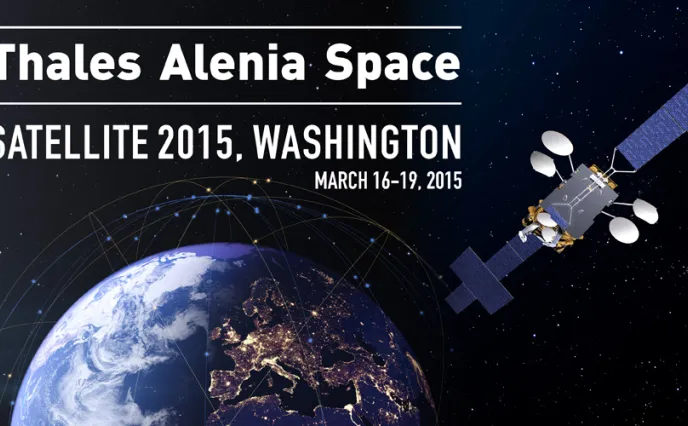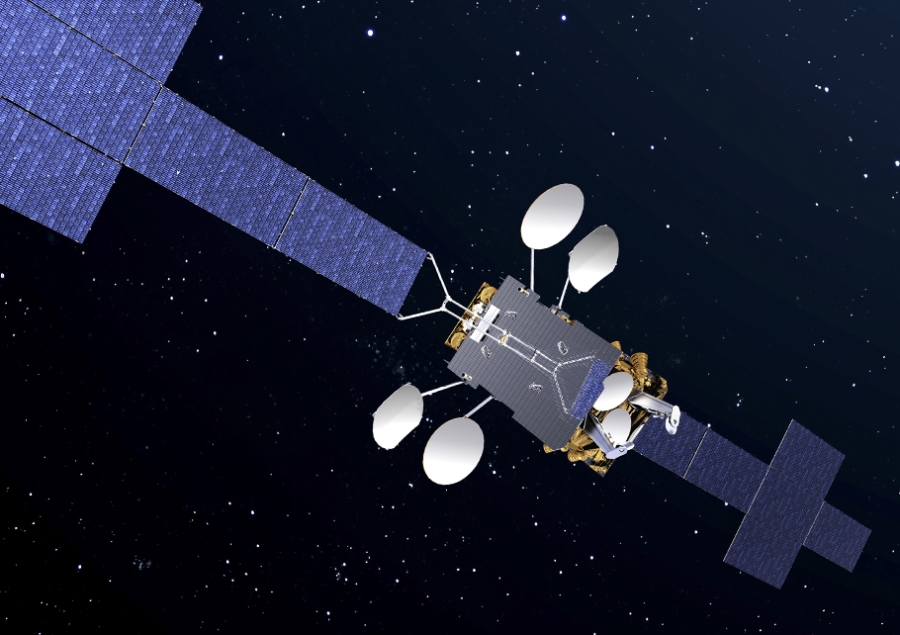SATELLITE 2015: Space for Thales Alenia Space in Washington, D.C.

From March 16 to 19, Thales Alenia Space is at the SATELLITE 2015 international trade show and exhibition, an annual event in Washington, D.C. which is the top date in the calendar for everybody in the space and telecommunications industries, from manufacturers and operators to end-users.
In the spotlight this year are:
- Connectivity for All thanks to the Thales Alenia Space’s LEO and GEO solutions.
- Constellations of telecom satellites, which are playing a major role in reducing the world's digital divide.
- New solutions for a constantly changing telecom market.
Flying the Space Alliance's colors
The Space Alliance is present this year in Washington. The Alliance was formed by Telespazio and Thales Alenia Space, enabling them to provide a complete slate of solutions, including services. For Thales Alenia Space, SATELLITE 2015 provides an excellent opportunity to unveil its new Spacebus NEO platform for geostationary telecom satellites, StratoBus, a concept halfway between a drone and a satellite, smart, modular and flexible payloads, and its world-renowned expertise in constellations. Through Brazil's SGDC program, Thales Alenia Space will also show how it helps countries develop their own space program.
All-electric Spacebus NEO!

Spacebus NEO is Thales Alenia Space's new family of platforms for geostationary telecom satellites. It will be available in different versions, one with all-electric propulsion.
A wide variety of configurations
These new platforms will be available in a range of versions for all types of geostationary satellites, from small to extra-large. Operators can choose the configuration that matches their needs, from all-electric to all-chemical propulsion, as well as hybrid models. Starting in 2016, they will be ready to handle payloads up to 2 metric tons, with onboard power up to 20 kW.
All-electric version
The all-electric Spacebus NEO will be commercialized starting in mid-2015. It can handle payloads exceeding 1,400 kg, with more than 16 kW of power.
Thales Alenia Space, the worldwide leader in telecom constellations

With a total of 117 satellites, Thales Alenia Space is the global leader in telecommunications constellations in medium and low Earth orbit. The French-Italian joint venture has already built 24 second-generation satellites for Globalstar, 12 satellites for O3b Networks, and is prime contractor for the Iridium NEXT constellation, comprising 81 satellites. Thales Alenia Space boosted its production capacity and rates for the Iridium NEXT system, to deliver 4 satellites/month, and has also achieved initial breakthroughs in its production line.
To meet the needs of an even larger constellation, such as One Web, which would entail a production rate of up to 2 satellites/day, Thales Alenia Space has drawn up a very clear roadmap. It features a highly agile production line, capable of taking breakthroughs in this area to a new level, and therefore ready to rise to this unprecedented challenge by capitalizing on lessons learned from previous constellations.
StratoBus: halfway between a drone and a satellite

Thales Alenia Space is offering StratoBus, a new concept for an autonomous stratospheric platform, halfway between a satellite and a drone. Within the scope of the Pégase competitiveness cluster, it is being developed in partnership with Zodiac Marine and CEA-Liten, with Thales Alenia Space as industrial prime contractor. StratoBus is an airship operating at an altitude of about 20 km, above air traffic, which can carry payloads weighing up to 200 kg, with 5 kW of power. It offers a service life exceeding five years, and is designed for a number of different applications, including border and anti-piracy surveillance, augmentation of the GSM network for major events, and enhanced GPS coverage in heavy traffic zones.

